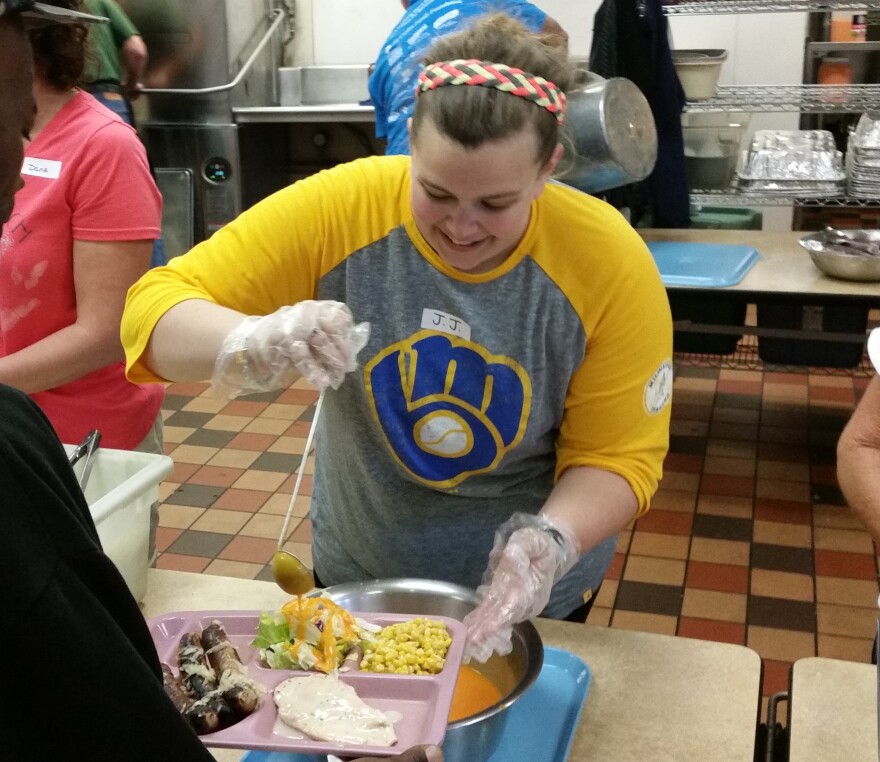In April, the state began requiring some form of work in exchange for FoodShare benefits.

Gov. Scott Walker’s administration also wants to drug test participants, although the USDA says blanket screenings are illegal.
Each month the work mandate kicks in for thousands more FoodShare recipients, when it’s time for their annual benefits renewal.
State Medicaid Director Kevin Moore says there are a couple ways people can satisfy the work requirement.
“The first one is to work at least 80 hours each month. The second option is to take part in a training program or have a combination, so long as you’re meeting that 80-hour per month threshold,” Moore says.
The 80 hours can include taking part in the new job training program the state has created.
The mandate applies to able-bodied adults, under age 50, with no dependent children. People such as 29-year-old Marvin Griffin. He’s unemployed and says he’s fallen on hard times. He’s looking for work.
“My specialty is cooking because I’ve worked in so many restaurants -- not a fast food, I’m talking about, like, a real restaurant,” Griffin says.
Griffin says while he searches, he feeds himself at the St. Ben’s Community Meal in Milwaukee. He also uses $190 a month in FoodShare benefits. Griffin fears he’ll soon be cut off.

“I’m going to receive food stamps three more times out of a year. I feel like it’s really some B.S. to me, excuse my language,” Griffin says.
In truth, if Griffin can prove he’s trying to find work, he could remain eligible for benefits.
There’s a lot of confusion about the work rules, according to Brother David Hirt. He runs the St. Ben’s meal.
“We can’t change the program, but we’re really hoping to get people to understand what they need to have done so that they can continue to receive their benefits,” Hirt says.
The state is sending letters to people telling them about the change. But what those who don’t have a reliable address? The question comes from MacCanon Brown, who works with homeless people in Milwaukee. She runs the MacCanon Brown Homeless Sanctuary on the city’s north side.
“For many of them, mail from the postal service does not perfectly serve them. So if something was sent out in the mail, it maybe won’t even reach them for various reasons. Or maybe they don’t even have a mailing address at this time, so there is not a real clear way to notify people,” Brown says.
Other people may ignore the letter from the state. Sherrie Tussler is head of Hunger Task Force in Milwaukee. She says some FoodShare recipients have told her the letter is confusing, because it refers them to a private company the state hired to run its new job training program.
“People haven’t heard of the agency, so people will look at it and go, ‘this isn’t for me,’ not realizing that it is for them, and that their time clock is essentially ticking, and they are about to lose their food stamp benefits for three years,” Tussler says.
Tussler says the state should be doing more to inform people of the work requirement, for instance, running public service announcements. The state disagrees.
“Anxiety is the one thing that we don’t want to cause,” says Medicaid director Moore. He points out that the work mandate applies to only to about one-tenth of the population getting FoodShare benefits. So, he asks, why raise questions for hundreds of thousands?
“You’ve got almost 801,000 individuals in the state of Wisconsin that receive food supplemental benefits through the FoodShare program. The population we’re talking about is a very small subset of that. And so to do more of a large-scale mass media push really confuses members,” Moore says.
Moore says it’s too early to know how many people are heading toward losing their food benefits.






